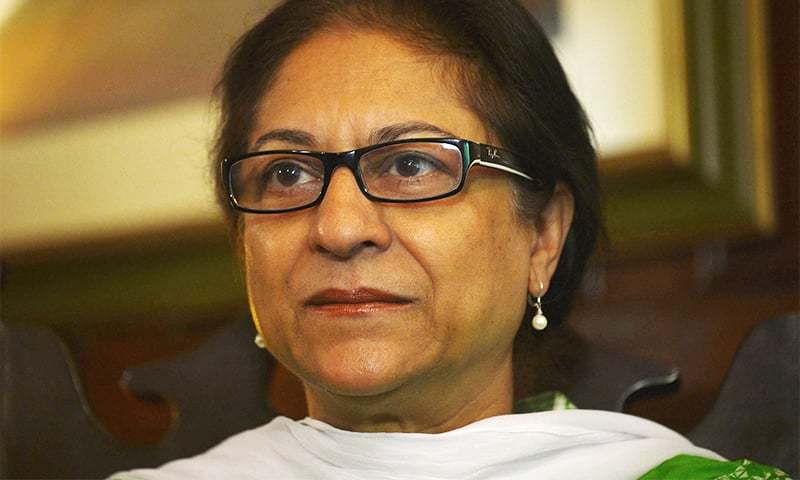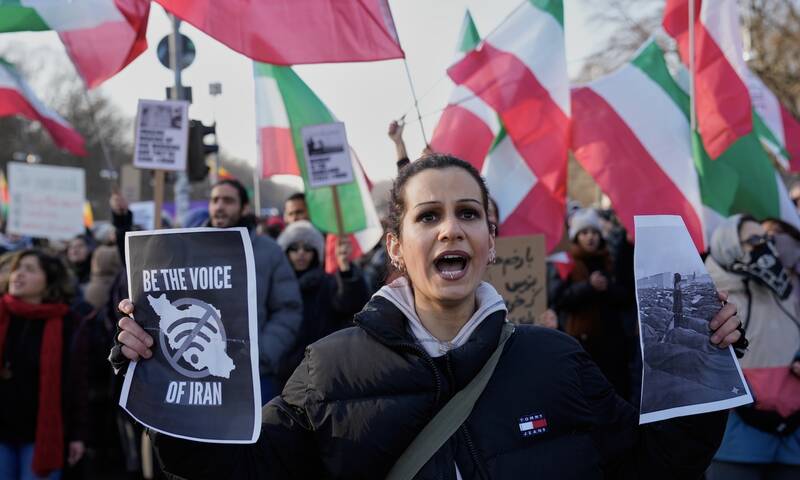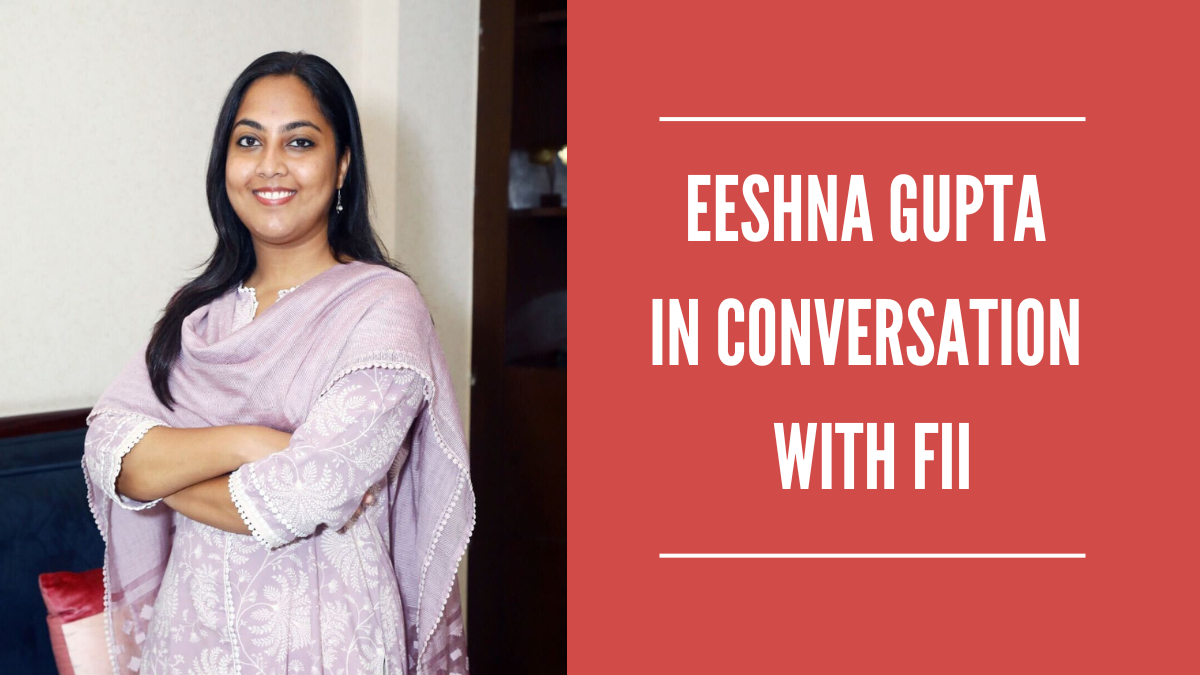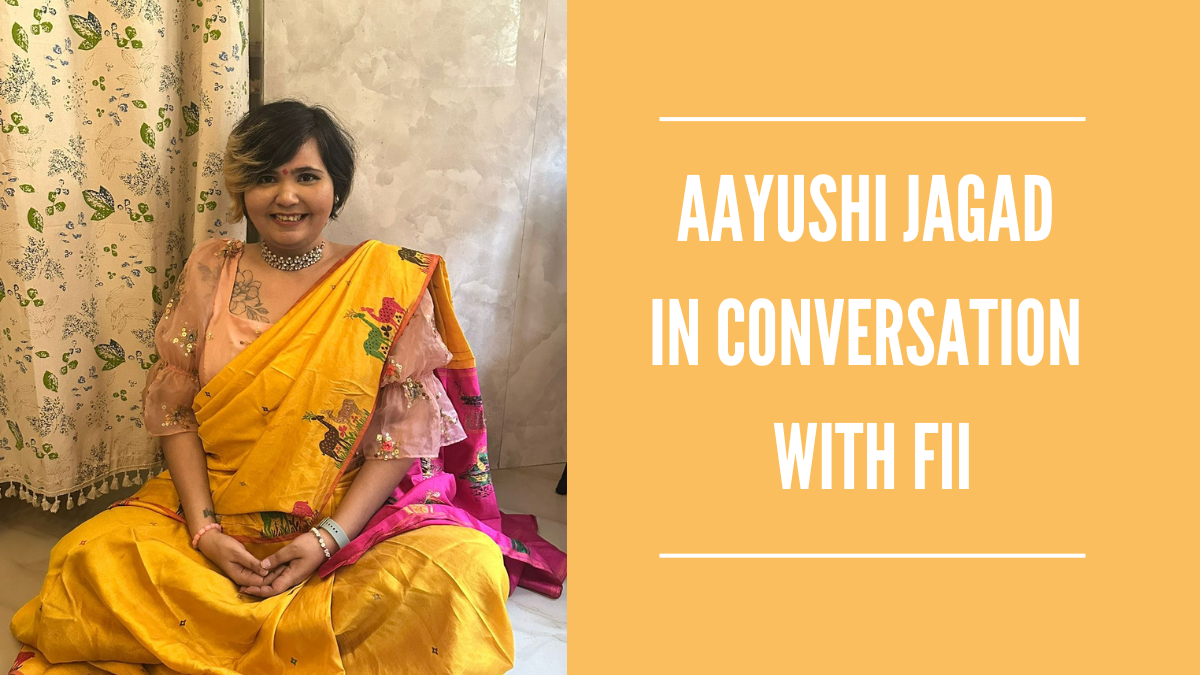Posted by Kathy Arlyn Sokol
Asma Jahangir was a social activist and human right champion from Pakistan. She was the co-founder of the Human Rights Commission of Pakistan. Asma Jahangir passed away on the 11th of February, 2018.
Kathy Arlyn Sokol: In the West, our view of woman in Pakistan is somewhat skewed by the fact that you can have a woman as prime minister, yet women’s rights are virtually non-existent. How do you explain this dichotomy?
Asma Jahangir: We are a country of contradiction and dichotomy. On the one hand, you have this perception in the West that as you land in the airport in Pakistan, you will never see women and will never talk to a woman. Yet you see women here who are sitting in high positions; in every profession, you see very powerful women in the labour force. You see women as doctors, as nurses, as teachers. Few countries can boast of having a woman prime minister as well, which we have had. So, I think this is a very interesting perception that you have because I think our hope lies in that.
But there is also the fact that you have the women members of a family surviving a political situation and then coming up to replace the male figure. It’s not that we have had a prime minister who has been there on her own. It certainly has been through a family member. Bandaranaike of Sri Lanka, her daughter, Indira Gandhi and Sonia Gandhi of India, and in Pakistan, Fatima Jinnah and Benazir Bhutto rose to positions of power through their families. So, there really has not been a female leader who has come up by herself. She has been a replacement of the male figure.
The kinds of rights we have on paper are absolutely nil and the kind of sexist atmosphere we have is very apparent, to any, especially a female visitor from any other part of the world. If you go to any of the other countries nearby like Sri Lanka or Nepal or India or Bangladesh, you see far more visibility of women than you do in Pakistan. At the same time, I think that it has been this oppression of women in Pakistan that has made them very strong and has made them aware. It has also made them realize that they have to really fight and they are survivors.
But the position of women and isolated women in positions of power because of their families are different.
KAS: The women whom I’ve met in Pakistan are not only well-educated and articulate, they seem to hold a very strong place in the household where there are arguments with the men, with their fathers concerning political and social issues. This is very different than the picture that is portrayed in the West of women in Pakistan.
AJ: It is not the educated women alone; it is true of even the uneducated women which are most of my clients. There is such wisdom about them that it is unbelievable. They have what I call horse sense and they catch on very quickly. That is because they have had to deal from the day they were born with a hostile environment around them. That is the only explanation that I can give.
I have never to this day and believe me this is true, had to tell my client what to say while giving evidence. I have never done it.
Only ten years ago we had women taking the government to court on the issue of admission to medical schools. This was a long legal battle but they won the case in the Supreme Court. Despite the fact that the petitioners themselves couldn’t get in as years had passed, they continued to fight it out because they thought others could benefit from it. So that commitment, that understanding is there; and I think a change is coming.
KAS: In the early l950s there was a tennis champion in Pakistan, who was wearing shorts.
AJ: Yes, Laila.
KAS: This was during the initial establishment of the country. How has Pakistan shifted in terms of its treatment of women since 1947, and if Jinnah were alive today how do you think he would view the situation?
AJ: I think if Jinnah were alive today, he would be a member of the Women’s Action Forum and sitting in the opposition. I believe that he would feel really confused.
My mother, Sabiha Jilani, for example, had studied at Forman Christian College in Lahore, which was a co-ed college. She was badminton champion and used to swim. She would enter into debates. There was no question of segregation in that college. I, myself, used to cycle down to college and there was no restriction on the dress at all. In winters, I would wear pants and go off to college and there was no hassle about it.
But over the years I think things have really changed and they have changed for the worse for women. Since we have seen better times, it is not easy for the orthodoxy to put us where they wish to see us.

Image Credit: The Express Tribune Blog
KAS: Do you think the economic strife in the country is a factor that has allowed the orthodoxy to gain power? People feel no financial security, so religion becomes their focal point?
AJ: You see, religion has always been a focal point of people in our country, and in the subcontinent, but in a more spiritual manner. It is only when you politicize religion that you begin to empower orthodoxy.
If you look back on the ’60s, for example, the kind of government reports, the kind of judgments that were being delivered were very progressive. Suddenly you see a deterioration in the ’80s, and that was because the state had decided to use religion as an instrument of oppression, and the reason was very political. The reason was we were waging war against the Soviet Union in Afghanistan, and for that, the government needed their own local support which was the orthodoxy. It was not the liberal elements or the political parties that were going to support that.
Economic deprivation and an unstable transition to democracy have been other major breeding grounds for the orthodoxy’s power.
KAS: What would you consider wise leadership today?
AJ: A prime minister who recognizes the fact that their existence is very much interlinked to the existence of democracy in this country. Instead of taking measures to strengthen their own solitary power, if they took measures to strengthen the democratic system as such, that would be wisdom and farsightedness.
KAS: How did you first get involved in attempting to change things within Pakistan?
AJ: My father, Malik Ghulam Jilani, was a politician and at certain times a parliamentarian, but always in the opposition because we have had military governments for so long in our country.
I was nine when my father first went to jail. He was in and out of jail for seven years altogether. Not seven years consecutively but one and a half years at one time, two years at one time, six months at another time. But seven years is a long time when you are growing up. The first time I saw a prison was at the age of 11. By the time I was 13, I was going to lawyer’s offices. When I was in college, I conducted a case on behalf of my father. I saw the oppressive state apparatus very closely and how it worked and how people suffered under it. So, I was made aware.
I grew up seeing my father go in and out of jail, fighting for fundamental rights which we now take for granted. I haven’t followed in his footsteps because I much prefer to be in human rights and be involved in the women’s movement than be a politician.
KAS: Was your mother also actively engaged in the movement?
AJ: Yes, I think we were all actively engaged. We couldn’t help it. My mother first lived it through her husband and now she is living through her daughters.
When I was only 11 or 12 years old, there was a political assassination on the verandah of our home. My father had to go into hiding for a month because the assassins were looking for him. My mother was so strong and she was able to protect us not only from harm but from insecurity. That is why I think even today I’m not scared. I have only learned to say what I think is right.
KAS: How has your work as an activist affected your personal life?
AJ: My mother cannot thank my husband enough for keeping this woman a wife. Deep down she is very conservative and doesn’t think that I deserve to be called a wife. I do not spend enough time with my children and I have to thank them because they have been very supportive.
After the birth of my second child, Selema, I think I went through one of the worst stages of my life. I withdrew. I stopped taking an interest in things. All I wanted was enough time to catch up on my sleep. But then I looked at myself and I said, ‘I’m not just a mother, I am not just a daughter and a daughter-in-law and a wife, and yet I have reduced myself to this vegetable state which I am in.’
The next day my husband and I were invited to lunch and two of the people there were lawyers. I told them that I wanted to practice law. Both of them dissuaded me from practising in a male law firm and said that it was not geared for women to practice in. Instead, they suggested that I set up my own firm. In the beginning, my husband was indifferent because like everybody else he didn’t think I was going to stay in practice very long. By the time he became resentful, it was too late.
There was a period when he felt, “My god, what is happening? Stop her!” The wife was gone and there was another person there. We live in this society and for my husband to support what his wife is doing, which is so controversial, was not easy. Gradually, though, he began to accept it.

Young Asma Jahangir at an anti-Zia protest. Image Credit: Samaa TV
KAS: Do you remember your first case and how you handled it?
AJ: Well, I am very embarrassed about my first case because it was a total disaster. It was a custody case and I had no idea of how to conduct it. We thought that we had done a fantastic job, only to learn that we had done everything absolutely wrong.
It was really by trial and error that one got on with this profession. It’s not an easy profession and it took many, many years to really get a grasp of it. I think in that way one has come a long way because we’ve learnt so much in the profession – not just the law, the workings of it, and getting hold of the main issue. The first time you argue in court, you are stuttering. For many years you continue to stutter, your legs shake.
KAS: The army has ruled for twenty-five of the country’s past fifty years and the democratically elected governments have barely limped along. You are quoted as saying that we haven’t yet made the transition.
AJ: In the sense that transition means the transfer of power to democratic institutions, this has not fully taken place. It’s still controlled very much by the army.
We also have people sitting, even today, in all of these democratic institutions who really don’t believe in democracy, who themselves have been a product of the military government. They very much believe in patriarchal politics, very much believe that this country should be ruled with an iron hand, and are very much of the view that illiterate, uneducated coots like us really do not know what is best for us, so they must tell us what to do. That’s their idea of running the country, and to find them sitting in democratic institutions is very unnerving.
A transition has to be the building of institutions, and the personnel in those institutions have to respect those institutions, and those institutions have to work. Most of all, it is changing a mindset.
KAS: There are deep-rooted economic problems here, as well as poverty, corruption, injustice and illiteracy. What is your personal vision of Pakistan in the 21st century, and what does this country have to teach the rest of the world?
AJ: If I really tell you my personal vision you will think that I am quite crazy because it is just a dream. I don’t really see that it is going to happen.
My personal vision of Pakistan in the 21st century is a country of people who have a lot of skill, a country of people who have a lot of patience, and a country of people who have a lot of humor walking into the 21st century with good neighborly relationships and more color in their lives than the death and the black and the white that we see.
What we have to teach the rest of the world is some of the values that we have, which I respect and which are not always portrayed on CNN and BBC, but are very much a part of us every day: our hospitality, our humour, our caring for the elder people, our caring at the community level.
I would like to see more respect for our regional identity that we have lost in terms of who we are and where we belong. We are not just Pakistani, but South Asians.
If we have to fight for justice and against those forces who are really misusing religion for terrorizing not only minorities but sooner or later will terrorize any moderate movement or system, I think it is time we stood up.
I do come from a privileged background and people use that against me, but I have been able to use this position to the advantage in my work. Sometimes I think there is a dichotomy between what I think and what I am, so I become disoriented. I work in the morning with not only disadvantaged but absolutely trampled upon people. Then I come home and it’s another world. It’s not easy to live with.
It is a valid criticism that the women’s movement is somewhat elitist, but it’s only those women with that kind of educated background who could go out and march in the streets against a military dictatorship and the Islamization process and then get away alive. How can these women who are not allowed to leave the four walls of their home, who are being beaten, how can they suddenly become very active?
Hopefully, in the 21st century, the leadership of the women’s movement in this country will pass on to these women. They will probably have more fire in them than we do.
I think people are afraid of the women’s movement because it’s the longest social movement in history. Looking at it in a global manner there has been a world of change. Twenty years ago (1978) was the first UN Conference on the Rights of Women. Twenty years ago the phrase ‘women’s rights’ was not understood in Pakistan.
But today it is very much alive. You see it in the lives of the women at the prison; in the lives of the women who make bricks; in the lives of the women sitting in the jails of Pakistan; in the hearts of the young students who wish to see themselves as leaders of tomorrow. It is very much there.
The women’s movement has taken a seat in the hearts of women in every remote corner of the world, and when this happens, we move forward.
Also Read: Why Must Pakistani Women Suffer To Be Heard?
This interview is an excerpt from the original interview published in November 1998 in the Kyoto Journal.
Kathy Arlyn Sokol is a non-fiction author and Emmy award-winning narrator who spent over 30 years in Kyoto. Her published works include ‘Living in Japan’ and ‘Another Kyoto with Alex Kerr’; ‘RasTa Time’ on Bob Marley’s life & legacy; and scores of interviews with distinguished cultural personalities such as Pandit Ravi Shankar, Amish Tripathi, Arundhati Roy, etc, for leading Japanese periodicals. She currently resides in Udaipur, Rajasthan.
Featured Image Credit: Dawn
About the author(s)
Guest Writers are writers who occasionally write on FII.




